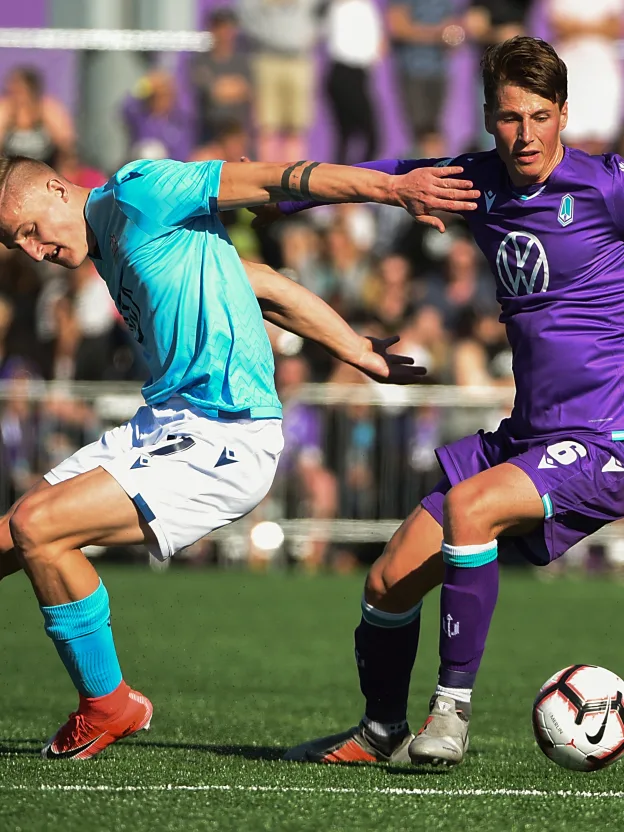As soccer has slowly returned around the world in the past few weeks, fans have noticed that the sport emerging from the shutdown is a markedly different one from what it was in February. More than just empty stadiums, we’ve seen squad depth playing a greater role in European leagues where five substitutions have been allowed, and — perhaps most noticeably — we’ve seen goals pouring in by the bucket (in some leagues, that is).
A few CPL coaches suggested to CanPL.ca that the latter phenomenon may not be the case when play resumes, though. Perhaps the longer amount of time spent training in June and July will help prevent the slew the goals?
Still, one would think that defending suffers most from small-group and contactless training. A forward can still run, shoot, and perhaps even try out a few crosses. A defender, though, surely isn’t making many tackles in training nowadays, nor is a team able to spend much time on its unit defending. We posed the question to Pacific FC defender Lukas MacNaughton. Will CPL teams struggle to defend once they return, having been unable to refine its defensive strategy? “I don’t think so,” MacNaughton responded. “We’ve done a lot of video work as well; it’s always been looking at our team shape from last year as well as looking at other teams that we’re looking to use as an example for us and the way we want to play.” He added: “Even though we’ve been doing non-contact there’s a lot of ways to train it; we can do shadow plays and think about scenarios. So as far as we go, I don’t think so. But maybe other teams.”
RELATED READING: Return to training, Week 4: CPL teams hit mid-Summer stride
That said, it’s not like there isn’t a learning curve. MacNaughton doesn’t believe players are going to hesitate to go into contact once CPL matches start up again — certainly, physicality isn’t going to be absent from his own game as a tall centre back. But, the game could still look a little different. “There might be a shock of getting on the ball and not knowing that there’s somebody coming on your shoulder,” MacNaughton pointed out. “Maybe people will be taking more touches on the ball, taking longer to get the passes out. It might shock them that people are coming at them quickly because they’ve been training for so long without any contact.” Indeed, playing passes in an isolated training setting probably grants a false sense of security, without an opponent charging to try and get in the way. Pacific’s defenders, at least, have been using the new training protocols to broaden their skillsets a little bit. “At the beginning when it was only three players we did a lot of individual technical work and passing into (small) nets, which actually was great because it allows you to do things you don’t necessarily get to do in a training session,” MacNaughton said. “But yeah, there’s no contact so it does make you focus on a different aspect of the game than you’d usually be focusing on. “Strikers are just finishing in the net, we’re begging to do that as well,” he joked. Perhaps, when the CPL returns, we’ll see every Pacific FC defender picking out 40-yard diagonal passes, or dribbling around midfielders on a regular basis. Or, maybe things will be as they always were. Either way, MacNaughton is confident that the Tridents won’t have missed a beat when that day comes.
